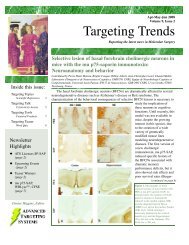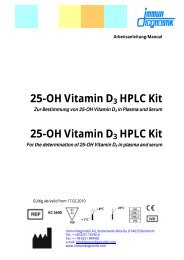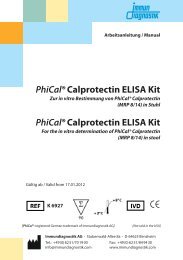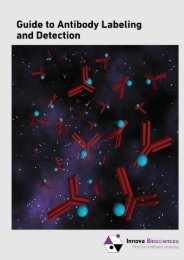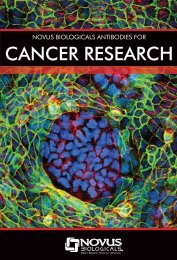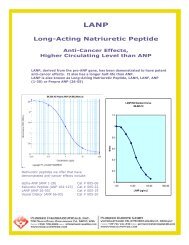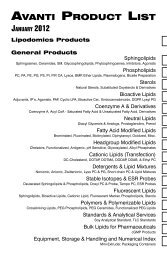Oncology Probes
Oncology Probes
Oncology Probes
- No tags were found...
Create successful ePaper yourself
Turn your PDF publications into a flip-book with our unique Google optimized e-Paper software.
<strong>Oncology</strong> probes - Hematology <strong>Probes</strong>From the 25,000 genes in the human genome, approximately 350 genes have been causally linked to the developmentof cancer. Variant or aberrant function of these so-called cancer genes may result from changes in genome copy number(through amplification, deletion, chromosome loss, or duplication), changes in gene and chromosome structure (throughchromosomal translocation, inversion, or other rearrangements that lead to chimeric transcripts or deregulated geneexpression) and point mutations (including base substitutions, deletions, or insertions in coding regions and splicesites). The vast majority (90%) of cancer genes are mutated or altered through chromosomal aberrations in somatictissue, about 10% are altered in the germ line, thereby transmitting heritable cancer susceptibility through successivegenerations. In addition to high resolution chromosome banding and advanced chromosomal imaging technologies,chromosome aberrations in cancer cells can be analyzed with an increasing number of large-scale, comprehensivegenomic and molecular genetic technologies – including fluorescence in situ hybridization (FISH).<strong>Oncology</strong> <strong>Probes</strong> - Hematology <strong>Probes</strong>Chromosomal translocation (t) is the process by which a break in at least two different chromosomes occurs,with exchange of genetic material between the chromosomes.DescriptionPageChronic Myelogenous Leukemia (CML) 12Chronic Lymphocytic Leukemia (CLL) 18Myelodysplastic Syndrome (MDS) 24Acute Myeloid Leukemia (AML) 29Acute Lymphoblastic Leukemia (ALL) 32Multiple Myeloma (MM) 3410Lymphoma 40



